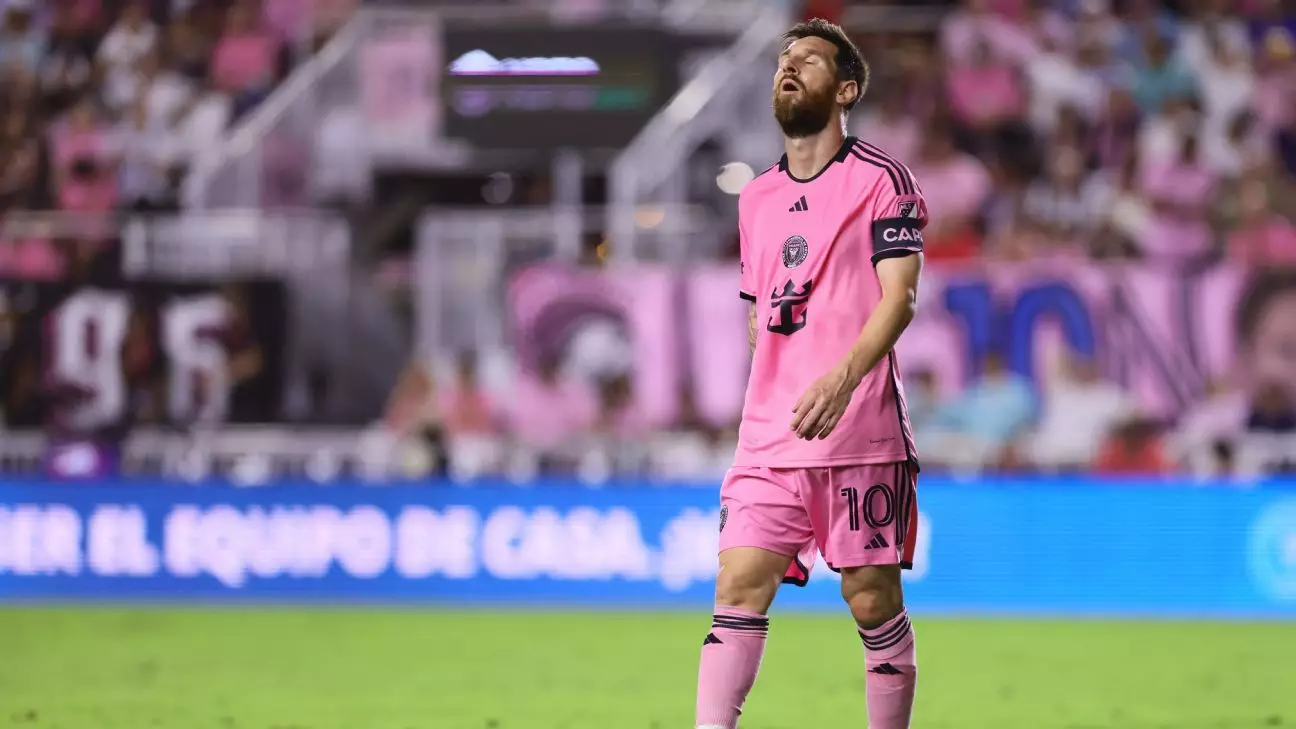The astonished gasps of over 20,000 fans echoed through Chase Stadium as the final whistle blew, sealing the fate of Inter Miami’s journey in the 2024 MLS playoffs. This storied franchise, led by luminaries Lionel Messi and Luis Suárez, unexpectedly exited in the first round, failing to capitalize on their season as the pre-tournament favorites. A profound disconnect unfolded as the squad, which had completed the regular season in a seemingly secure ninth position, fell victim to a determined and underdog Atlanta United side that had amassed a starkly fewer point tally. This begs the question: how did a team with such star power falter so drastically at the crucial juncture of the competition?
The seeds of disappointment were sown well before the playoffs began. Miami’s preseason from February was marred by logistical challenges and injuries, as players traversed 28,000 miles across three continents, hindering their ability to build cohesion. World-renowned player Messi himself acknowledged the struggles of a compromised preseason, highlighting the toll that extensive travel took on the squad’s fitness. “It wasn’t a good preseason,” he lamented, foreshadowing the challenges ahead.
The rigorous schedule was not without its consequences. The promising midfielder Facundo Farías, who was expected to be a vital addition to the squad, suffered a devastating ACL tear during the first friendly match. This injury was a harbinger of a troubling trend that plagued the Herons throughout the season—an alarming number of key players succumbed to injuries. By early March, Inter Miami boasted more players on the injury list than any other team in MLS, a statistic that would prove pivotal as the season wore on.
As the regular season unfolded, injuries continued to decimate the roster, with several players experiencing fatigue and muscular issues. With Messi and notable signings like Diego Gómez frequently sidelined, the sense of urgency grew, prompting the coaching staff led by Gerardo Martino to scramble for reinforcements in the transfer market. Quick fixes, while seemingly effective at times, derailed any long-term strategy the team hoped to cultivate.
“A few months ago, I felt like I was chasing a carrot, thinking that we would soon have everyone fit,” expressed Martino. This ongoing crisis created a troubling dynamic where the reliance on superstar talent became increasingly apparent. With star players like Messi and Suárez often carrying the load, the overall depth of the roster was consistently exposed.
The playoffs, a stage where even the most gifted players can falter, treated Inter Miami harshly. An unbalanced roster riddled with injuries failed to deliver in the decisive moments. In the key Game 3 against Atlanta, tactical adjustments were forced upon Martino when star midfielder Sergio Busquets was ruled out. This resulted in a makeshift lineup that struggled with synergy, highlighting the troubling reality—without consistent performances from their stars, Miami struggled to operate.
As the Herons fell short, their defensive frailties surfaced, with a disheartening record of only six clean sheets during the entire season. The misfortunes culminated in a gut-wrenching realization: while they had dazzled at times, the overarching lack of squad depth had disastrous implications during crucial matches.
Moving forward, Inter Miami must transform their approach if they hope to restore their status in the league. Lessons learned from the tumultuous 2024 season will be vital, particularly concerning roster depth and strategic preseason planning. The upcoming 2025 season will see the team navigate multiple tournaments, emphasizing the necessity for a balanced roster capable of managing the demands of cross-competition engagements.
Miami’s future hinges on strategic acquisitions and leveraging their existing talent. With several contracts expiring, including several players whose contributions were minimal, this winter proves to be a defining moment. Additionally, with Messi’s contract extending into 2025, the club should capitalize on his presence to attract reliable supporting players who can bring defensive stability and a multifaceted attack.
The promise of a 2025 season that embodies lessons learned from 2024 sits tantalizingly within reach. A thoughtful preseason and well-rounded roster will be essential to stoke the flames of ambition that have flickered since Miami’s inception. Should they fortify their defensive lines and deepen their attacking options, Inter Miami could emerge as a formidable contender in the Concacaf landscape once more, potentially avoiding the bitter disappointments that marred their recent campaign. The echoes of failure may resonate, but it is within their grasp to reverse course and set their sights on success.

